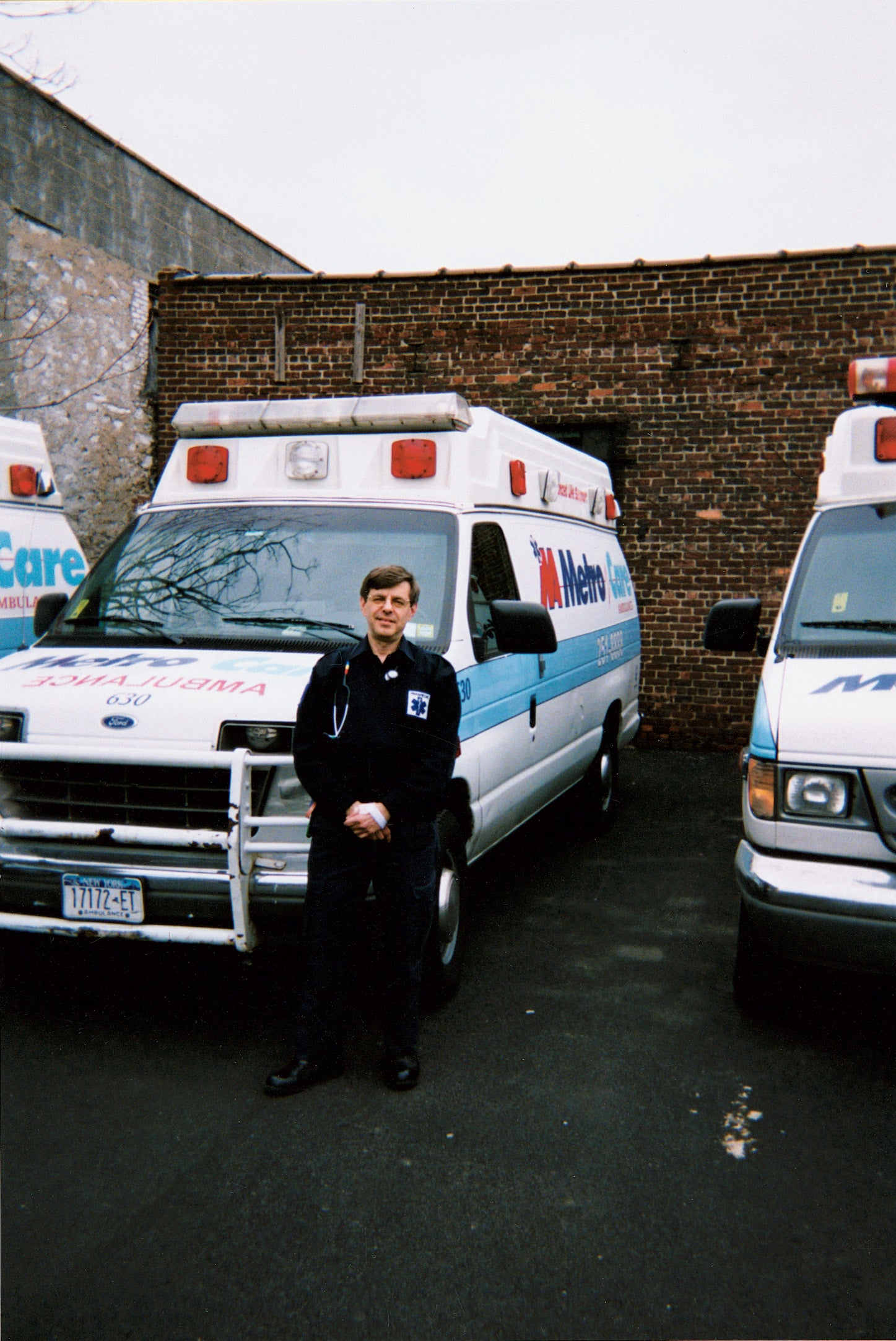Riding in the back of the ambulance as the lights flashed and the siren wailed, Richard Wells ’68 carefully tended to an 88-year-old woman who had just suffered a massive heart attack.
As his partner sped through the streets of New York City, Wells monitored the three medications the patient was receiving through intravenous lines. He conducted several electrocardiograms and noted changes in her heart rhythm. When they arrived at the hospital, Wells gave a printout to the cardiologist, helping the doctors with their treatment decisions and saving precious minutes. While the technology and his expertise were critical, Wells says he offered something else to the woman.
“I got her to laugh,” said Wells, 61. “We became friends. In some ways that’s often the most important thing that you can do–a hand on the shoulder, calm talk or holding someone’s hand. You can see the blood pressure and the heart rate go down. If you are having a heart attack, any additional stress makes it worse.”
His job as a paramedic is physically and intellectually demanding. Wells works 16-hour shifts for a New York City-based private ambulance company doing high-risk transports and responding to emergency calls. He carries 40 medications, including controlled substances, and must carry in his head the drug interactions for each so that he does not give the wrong medication to a patient in distress. To make such life-or-death decisions, he leans on his Harvard Law training, he says.
“We make diagnoses out there. We decide which drugs to give,” Wells said. “The intellectual aspect of it is trying to come to a conclusion rapidly by taking your facts, coming up with a hypothesis and taking action rapidly. What a law school like Harvard does is really teach you how to think.”
His days and nights riding in an ambulance are a far cry from his first job out of HLS as a Park Avenue corporate lawyer. Wells spent five years there before deciding that he was “tired of helping rich people get richer.” He went on to work as special deputy comptroller for New York City in the 1970s, when the city was on the verge of insolvency and required a federal bailout. Wells helped create new laws and procedures to prevent the city from spending money that it did not have–precursors to many of today’s municipal governmental policies. In the 1980s, he became an entrepreneur, co-founding a successful telecommunications company at the time that AT&T was breaking up. But he was still restless.
A voracious reader, Wells found himself turning to works about science. He read Charles Darwin’s writing and delved into books about biology and life sciences. Then in his 50s, he thought about going to medical school. But that was a long haul. After considering a career in public health, Wells decided to become a paramedic. For two years, he took an intensive load of classes while working on an ambulance as an emergency medical technician. After being out of school for more than 30 years, he had the daunting task of memorizing complicated rules of pharmacology and learning precise medical techniques.
But all of the hard work was worth it, he says. When responding to calls, Wells can use his Spanish, which is fluent from his two years as a Peace Corps volunteer in Ecuador. He meets people from all walks of life, and every day, he has a chance to come to someone’s aid.
“I don’t know if I’ve left the world a better place, but I know that I have helped some people,” Wells said. “I’ve done it on a large scale in helping New York City cope with its largest fiscal crisis. At this point in my life, helping one person at a time is very important to me.”
